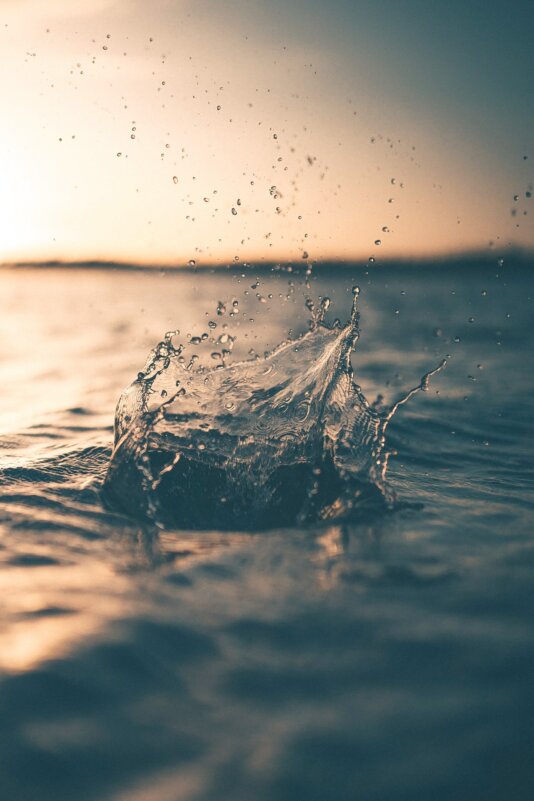- About
- Topics
- Picks
- Audio
- Story
- In-Depth
- Opinion
- News
- Donate
-
Signup for our newsletterOur Editors' Best Picks.Send
Read, Debate: Engage.
| April 19, 2022 | |
|---|---|
| topic: | Conservation |
| tags: | #Africa, #wildlife, #water, #drought, #climate change |
| located: | Namibia, Botswana, Zambia, Zimbabwe, Kenya |
| by: | Cyril Zenda |
This year, many parts of southern Africa are once again experiencing severe droughts. These arid conditions have become more common in the recent years as the region - which is home to elephants, rhinoceros, lions, cheetahs and other endangered wildlife species - is not spared the effects of climate change.
Such droughts are causing anxiety among wildlife conservationists, as memories of past tragedies are still fresh in their minds.
Every year, tens of thousands wildlife are perishing in Africa because erratic rains and hotter temperatures are leaving them without food and water.
However, with countries struggling to secure water for human consumption, wildlife is at the bottom of the priority list of most African governments. This is fast making water shortage a much bigger threat to the continent’s wildlife than poaching.
In 2018, the Namibian government revealed that it had recorded about 64,000 wildlife deaths due to lack of water and food. Among these dead animals were elephants, rhinos, giraffes and many other grazers, some of which are classified as endangered.
When the drought conditions persisted into 2019, the Windhoek administration announced that it was selling of more than 1,000 of its wildlife in order to reduce pressure on the limited water and food.
"The grazing condition in most of our parks is extremely poor and if we do not reduce the number of animals, this will lead to loss of an animals due to starvation," Namibian Environment ministry spokesperson, Romeo Muyunda said at the time.
In 2018 in Zimbabwe, one of the African elephant range states that currently boasts of a 100,000-plus herd, more than 200 of these jumbos succumbed to lack of food and water, a number hugely incomparable to those that are collectively lost to poaching over several years.
In 2019, more than 100 elephants died in Botswana’s Chobe National Park due to drought, and when the rains finally came in 2020, more than 350 other succumbed to a mysterious bacterial condition that some scientists said was traceable to the drought of the previous year.
The same trend has played out differently in Zambia, Malawi, Mozambique and other African countries that are home to huge wildlife numbers.
Both the World Wildlife Fund (WWF) and African Wildlife Foundation (AWF) have classified water scarcity as one of the serious threats facing wildlife in the world.
Charly Facheux, AWF’s Vice President of Conservation Strategy, Knowledge Management and Impact, said in a statement that in Africa, reduced access to water sources not only impacts human welfare in urban and rural areas, but is also claiming wildlife species, fragile ecosystems and the communities that depend on them.
"Water-dependent mammals like the elephant and rhino - already decimated by poaching - also contend with changes to their habitats," Facheux said. "In eastern Africa, rainfall is projected to increase, but a significant decrease is expected in the south. Across the continent’s rapidly industrialising landscapes, the risk of flash floods and harsh droughts is high."
He added that smaller species struggle to adapt to the drastic reduction in rainfall and drying up of water holes, while conditions of severe water shortage also make other animals, like buffalos and antelopes, easy prey for lions and leopards.
Zimbabwe Parks And Wildlife Authority (ZimParks) spokesperson, Tinashe Farawo, said after the massive jumbo deaths of 2018 that the authority, together with conservation partners, had drilled boreholes, especially in the 15,000 square kilometre Hwange National Park, to mitigate the disastrous effect of droughts.
"Most of our parks are run on borehole water, for example Hwange is run on more than 100 boreholes, more than 90 are run on solar," Farawo told FairPlanet. "We last had the problem of water in 2018, when we lost 200 jumbos to starvation." The country lost 55 more elephants when the drought conditions extended into 2019.
Farawo said that although a number of wildlife have perished in the drought conditions of the past, only elephant deaths were recorded, as their sheer size makes it easy to spot their carcasses.
Reforestation is one of the long-term measures that the AWF says is effective in mitigating the effects of climate change. The foundation is involved in one such project in the Mau Forest ecosystem in Kenya’s Rift Valley region, which has helped secure a vital source of water for the country.
The AWF has also empowered communities in southern Tanzania to monitor river health and engage in conservation-friendly agriculture practices. In this way, not only are they maintaining critical habitats for the landscape’s wildlife, but they are also building their resilience to climate change through strategic conservation.
As global weather patterns continue to shift and human populations' growth rates rise, water scarcity is fast becoming one of this century’s most complex challenges. More than 4 billion people across the world face severe water scarcity due to the withdrawal of more water than is sustainably available.
Image by Chris Stenger
By copying the embed code below, you agree to adhere to our republishing guidelines.

